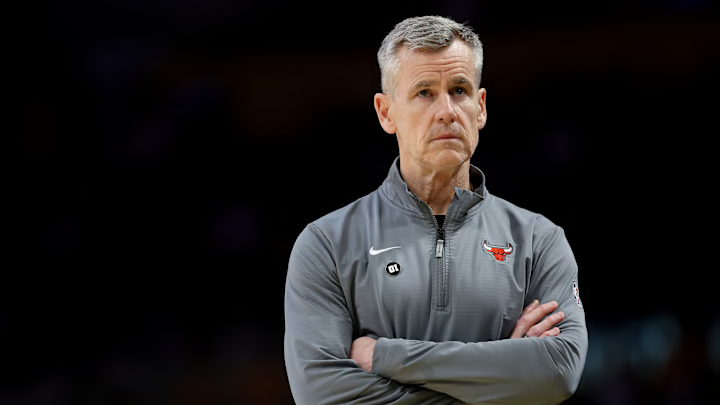The NBA's longest-tenured coach will no longer be on the sidelines. Gregg Popovich has stepped down after 29 years leading the San Antonio Spurs. Popovich will transition into a full-time role as the Spurs' President of Basketball Operations. At 76 years old, Popovich was the oldest coach in NBA history. Longtime associate and interim head coach Mitch Johnson will replace Popovich.
With Popovich stepping down, the Miami Heat's Erik Spoelstra is now the longest-tenured coach, at 17 years. Following Spoelstra are Steve Kerr (11 years) of the Golden State Warriors, Tom Thibodeau (5 years) of the New York Knicks, and Billy Donovan (5 years) of the Chicago Bulls.
Billy Donovan is already one of the NBA's longest-tenured coaches
The rarity of coaching continuity in the present-day NBA is jarring. Spoelstra and Kerr are the only coaches who have remained with the same franchise since the 2010s. Thibodeau, Donovan, Tyronn Lue of the Los Angeles Clippers, and Mark Daigneault of the Oklahoma City Thunder began their tenures in 2020. Three of the top five longest-tenured coaches to start the season are no longer with their respective franchises, including Popovich and recent departees Taylor Jenkins and Michael Malone.
Although there's been plenty of dismay surrounding Donovan, the 59-year-old outperformed expectations a season ago, and despite calls for change from the fanbase, continuity prevails against constant modification.
After a disappointing 2023-24 campaign that yielded 39 wins and saw DeMar DeRozan and Alex Caruso depart in the offseason, Donovan completely shifted Chicago's playstyle in 2024-25. Instead of a slow, methodical offense that abstained from taking threes, the Bulls forced the action, playing at the second-fastest pace and launching the third-most threes per game. A vast difference from ranking 28th in pace and 26th in three-point attempts.
The shift in playstyle was radical, yet it led to 39 wins despite a sharp, concurrent talent decline. The Bulls lost their leading scorer in the offseason and their second-leading scorer midseason. Still, even after jettisoning Zach LaVine at the trade deadline, Donovan led Chicago to a 17-13 record post-trade deadline. Donovan's adjustment from a four-guard lineup to inserting rookie Matas Buzelis into the starting group was one of the better adjustments last season.
While it's not outlandish to say Donovan underperformed with a core of DeRozan, LaVine, Caruso, Nikola Vucevic, and Coby White in the much-weaker Eastern Conference, it's misguided to assume Donovan should have done much better with the Bulls' roster a season ago.
Donovan should be judged by his future endeavors
The Bulls' 2024-25 campaign hit the reset button. Chicago purged its veterans and, as mentioned, revamped its offense. Thus, Donovan essentially is starting fresh—he should be judged for his future endeavors and not what has occurred in the past with a far different roster.
With constant roster shakeups in the NBA, continuity among coaching staffs is becoming of the essence. For instance, the Phoenix Suns have employed three different coaches in the past three seasons, while maintaining a similar roster construction. Accordingly, the Suns went 45-37 in 2022-23, 49-33 in 2023-24, and 36-46 in 2024-25. Of course, different variables exist, but abrupt coaching changes aren't always the answer.
Popovich and the Spurs are proof of how effective continuity is. San Antonio hasn't won 40-plus games since 2018-19, but after drafting back-to-back Rookie of the Year winners, the Spurs were poised to eclipse the 40-win mark in 2025-26. And, for what it's worth, Popovich's win percentage is 62.1 percent, so it wasn't like his squad suffering has derailed years of consistency.
Expecting Donovan to coach the Bulls for nearly 30 seasons is implausible, but so is giving up on the Hall of Fame coach in a matter of seasons. If there's a takeaway from Popovich's transition, it's that the NBA has been rather hasty in head coaching decisions in recent seasons and, as evidenced by the Suns among other teams, the grass isn't always greener.
